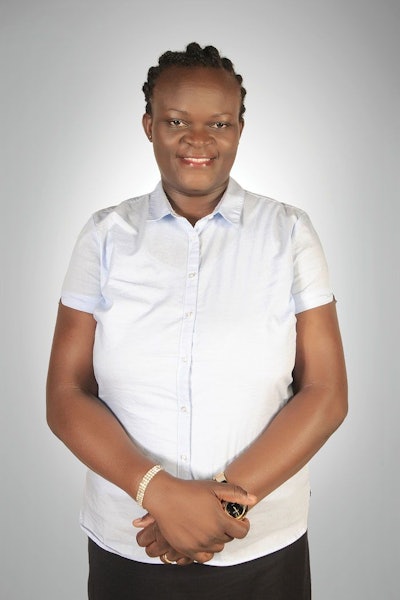
Education of women offers the opportunity to transform the livestock sector – and society more widely – in sub-Saharan Africa.
As International Rural Women’s Day approaches on October 15, it is worth noting the words of U.N. Secretary-General António Guterres, who said: "The empowerment of rural women and girls is essential to building a prosperous, equitable and peaceful future for all on a healthy planet."
In sub-Saharan African countries, a large proportion of the population reside in rural areas, and women provide most of the agricultural labor. Traditionally, this contribution is not always recognized, as fathers and husbands often restrict involvement in the community.
Improving numbers
Many sub-Saharan Africans still eat almost no meat, dairy or fish on daily basis. The Food and Agriculture Organization of the United Nations (FAO) estimates that just 7% of people’s dietary energy comes from animal products. However, like much of the world, there is growing middle class in Africa which is looking to consume a more protein-rich diet, with poultry and eggs often comprising the protein source of choice.
According to the FAO, poultry production and consumption levels are rising across Africa. However, there is still room for growth, and increased efficiencies and reduced incidence of disease will be vital to ensuring this.
Women already usually ensure the daily care of animals, particularly poultry, including feeding and cleaning. Training them on animal nutrition, reporting or diagnosing diseases and other animal health issues would improve farm productivity to meet this growing demand.
In my role as a lecturer at Makerere University, I see more women taking veterinary courses than in previous years. However, the proportion is still low. Whereas in Europe, veterinary classes often have up to 80:20 ratios in favor of women; in Uganda – and other sub-Saharan countries – it is not uncommon for there to be six or seven men to every woman in a course.
Numbers are improving, though. When I qualified as a veterinarian, I was one of only three women in my class; there were around 40 men. The class behind us didn’t have a single woman, and the one after them had one. There are 15 women to 70 men in my current class, which is very positive to see.
However, even when qualified, women veterinarians can face opposition, and men often receive better opportunities. Women must prove their skills and knowledge, and only then is acceptance more forthcoming. The more women we can train in animal health, the sooner it will become commonplace for gender to be insignificant in livestock management and other roles. We need to move on in society from seeing some roles, such as vets, as being for men and others, including nurses and secretaries, as being for women.
Support welcomed
In my role as President of the Uganda Veterinary Association, I work with a leading animal health company, Zoetis, and its African Livestock Productivity and Health Advancement (ALPHA) initiative. The five-year initiative, funded by a US$14 million grant from the Bill & Melinda Gates Foundation, aims to improve access to animal health education and infrastructure in Ethiopia, Nigeria, Tanzania and Uganda, and pays particular attention to ensuring training is accessible to women.
ALPHA’s focus in training and education efforts means that half of the people trained under the initiative are women. Over the first two years of the project, more than 420 women – 38% of the total who have received training – have benefited from the initiative in Uganda alone. They have been able to use their knowledge to the advantage of animal health and society more widely.
The initiative’s emphasis on involving women is not just a one off; it is shown throughout Zoetis. The company has been named one of the 2019 Top Companies for Executive Women by the National Association for Female Executives in the U.S., too.
Increasing the number of women educated in the agricultural sector, specifically vet training, provides an opportunity to boost animal health and the general well-being of society by reducing the incidence of disease and improving the quality of the meat produced.

Gender must become irrelevant where livestock management is concerned. (Courtesy Zoetis)

















